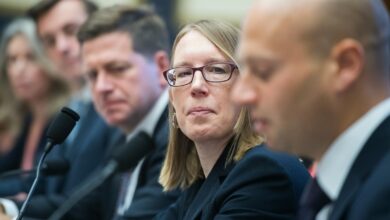SEC launches crypto task force

Peirce has previously criticized the agency’s approach to crypto regulation, and was an early advocate for it to approve exchange-traded vehicles that invest in crypto.
“The task force’s focus will be to help the commission draw clear regulatory lines, provide realistic paths to registration, craft sensible disclosure frameworks, and deploy enforcement resources judiciously,” the regulator said in a statement on Tuesday.
The agency also signalled a decisive break with its previous approach to the crypto sector, which has been led by enforcement action alleging violations of traditional securities rules.
“To date, the SEC has relied primarily on enforcement actions to regulate crypto retroactively and reactively, often adopting novel and untested legal interpretations along the way,” it said. “Clarity regarding who must register, and practical solutions for those seeking to register, have been elusive. The result has been confusion about what is legal, which creates an environment hostile to innovation and conducive to fraud.”
The new task force was announced by Mark Uyeda, an SEC commissioner who was named acting chair of the agency on Tuesday, pending confirmation of the government’s nominee for the role, Paul Atkins, a former SEC commissioner turned crypto lobbyist. Former SEC chair Gary Gensler formally stepped down Monday, while acting director of enforcement Sanjay Wadhwa will be leaving at month’s end.
“This undertaking will take time, patience, and much hard work,” Peirce said in a release. “It will succeed only if the task force has input from a wide range of investors, industry participants, academics, and other interested parties.”
That effort will include holding public roundtables on crypto regulation, the SEC noted. It also pledged to work with other federal agencies, including the U.S. Commodity Futures Trading Commission, along with state regulators and the SEC’s international counterparts in developing its approach.
“We look forward to working hand-in-hand with the public to foster a regulatory environment that protects investors, facilitates capital formation, fosters market integrity, and supports innovation,” Peirce added.
Source link



